Mesaba/Excelsior files PPA with PUC
December 29th, 2005
Excelsior Energy has filed a Power Purchase Agreement with the Public Utilities Commission for its Mesaba Coal Gasification Plant.
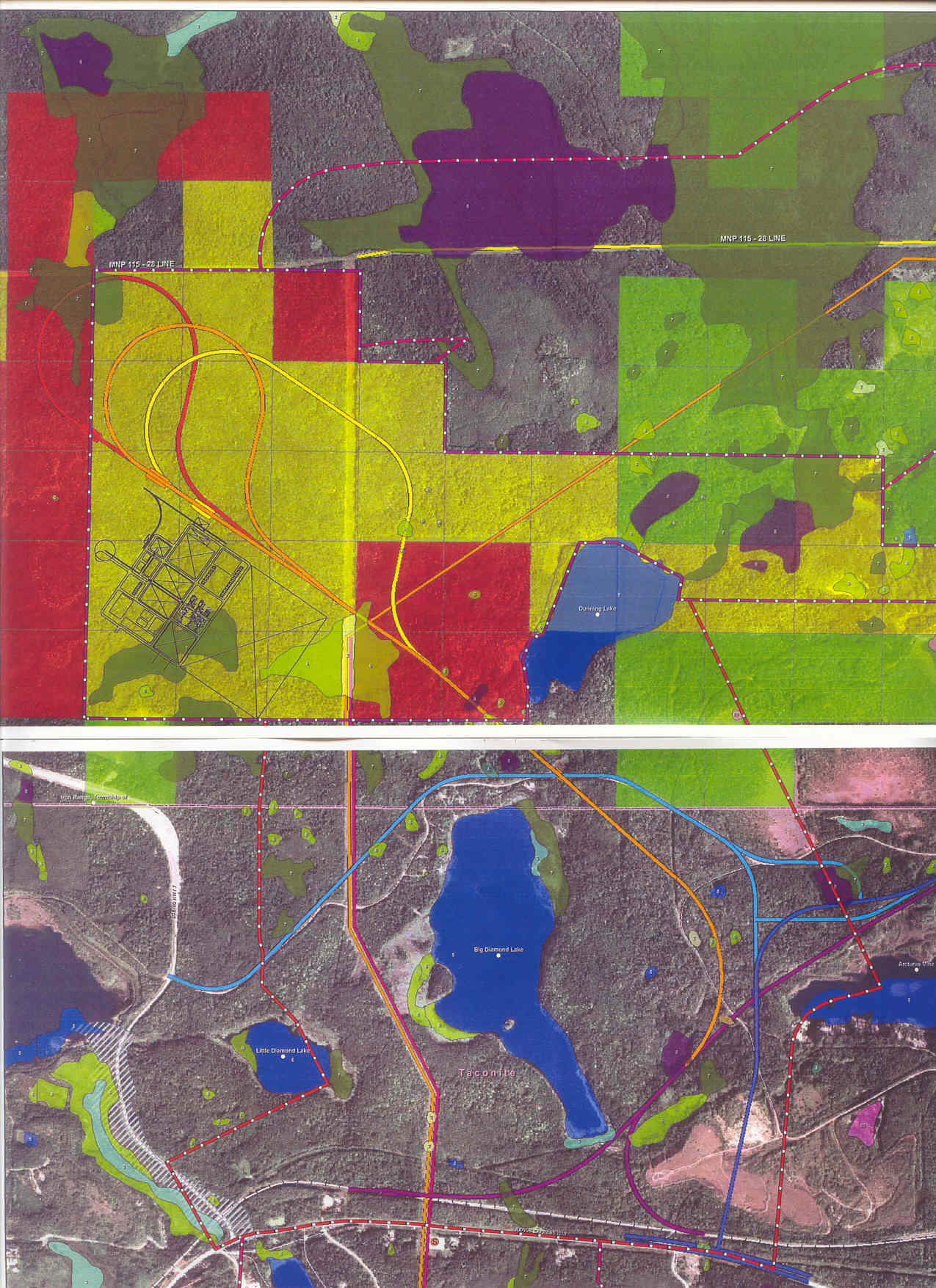
It made the front page of the Mesabi Daily News:
Excelsior files for pact
Petition goes to state PUC for agreement on power purchase
Excelsior’s Press Release about PPA with a few details
But here’s the real poop — the filings:
PUC Docket: E6472/M-05-1993
Comment period expected to be open until January 26, 2006 (a staff best estimate at this time). PUC will send Notice.
But let’s have some fun here. They’re limiting access to the filings to those who request them, and they have a special form, so let them know you’re watching and you want more info about it! Here’s that site:
Let them know we’re paying attention!
For example, pay attention to Section 1, starting at p. 37, and if you can read that without splitting a gut laughing or puking, well, you must work for Excelsior. And dig footnote 65, where they note that though we produce 20% of the world’s CO2, China consumes more coal than we do… so we’re supposed to develop this technology so they can use it? Ummmmm, color me addled by smog, but don’t those figures mean that they’ve already got something figured out about CO2 emissions that we don’t? But then again, look where reliance on coal gasification has gotten them — check their water pollution problems. Are WE paying attention?
Duck!!! The NRC has a bead on Minnesota!
December 28th, 2005
I’ve found some more info on the NRC’s take on Minnesota legislation that the agency thinks is going too far, where the agency opinion is that the NRC has jurisdiction and that some Minnesota legislation is encroaching on that jurisdiction.
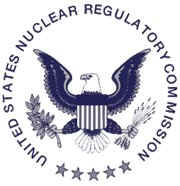
Here’s the document I found originally:
Here’s the approval of the NRC of the Agreement that the Pawlenty administration had requested, an agreement that gives the state limited jurisdiction over some small nuclear matters:
Commission Voting Record
November 2, 2005
Here’s what the Chair, Nils Diaz, of the NRC had to say:
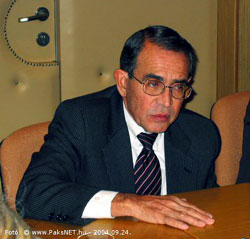
Chairman Diaz’s Comments on SECY-05-0170
I approve the staff’s recommendation to proceed with processing the State of Minnesota agreement application pursuant to Section 274 (b) of the Atomic Energy Act of 1954, as amended. While I understand the concerns expressed by the Team Leader, I believe that the staffs recommendation is sound and appropriate. In addition, I support Commissioner Merrifield in requesting that the General Counsel prepare an options paper for the
Commission’s consideration on possible approaches to the handling of preemption issues.

Commissioner McGaffigan wants staff to get right on it:
Somewhat reluctantly, I approve the staff’s recommendation to complete processing of the Minnesota Agreement application. I am concerned with the preemption issues that were included in this paper and I commend the Team Leader for raising them. I believe these concerns were insightful and significant enough to be raised. I also want to commend the staff for putting together a paper which included the Team Leader’s concerns. This allows the Commission to make informed decisions on these important issues.
I agree with Commissioner Jaczko that NRC’s authority is clear, and I too am a strong believer in preserving our authority. NRC has spent significant resources over the last few years ensuring that other agencies do not encroach into our jurisdiction and attempt to apply inappropriate security requirements on our licensees. In the decommissioning area, we have expended a great deal of time and effort working with EPA to reduce dual regulation. This case should not be any different.
The staff should work with Minnesota, and any other State where we are aware of preemption issues, and try to resolve the issues. I look forward to the options paper requested from OGC by Commissioner Merrifield on possible methods to address this issue.

Here’s what Commissioner Merrifield had to say:
I understand the concern raised by the Team Leader. While I do not believe that this issue affects the proposed Agreement with the State of Minnesota, I would like to see the Commission take a more aggressive posture in challenging State actions on preemption issues. I also agree with the Office of the Inspector General that a formal written policy on how the agency will address possible preemption issues is necessary. To this end, I would request that the General Counsel prepare an options paper for the Commission’s consideration on possible approaches to the handling of preemption issues, including the resource implications for the implementation of any new agency policy.

On a different vein, here’s Commissioner Jaczko’s Comments:
Only the NRC has the authority and responsibility under the AEA to regulate nuclear power
reactor operations, and I am a firm believer in preserving the authorities of the agency. Therefore, the State of Minnesota should not be setting standards for exposure levels at independent spent fuel storage installations located at nuclear power facilities. I applaud the staff for bringing this difficult issue to the attention of the Commission because of the potential policy questions it raises.The Agency’s mission, however, is to protect the public health and safety. Minnesota’s actions to create a more restrictive standard in no way threatens that mission. The NRC has set the precedent that when a democratically elected state government decides its citizens demand additional preventive measures be taken against radiological hazards, and the involved parties do not object, the NRC does not pro-actively work to undermine that effort.

And Commissioner Lyons is much less concerned than the others:
I am aware that Minnesota may have statutes and regulations that could potentially intrude into
areas reserved to the Commission. These state statutes and regulations, however, do not concern areas over which Minnesota is seeking authority as part of the agreement with NRC. In this regard, I believe that the staff is correct that a finding of compatibility of a State’s program with NRC’s program is a matter separate from possible Federal preemption issues. In addition, nothing in the proposed agreement with Minnesota precludes the staff from
addressing possible preemption issues should it wish to do so in the future.
Intolerance – Aren’t you having problems here?
December 28th, 2005
No, folks chosen”randomly” to talk about political issues don’t have a problem with immigrants and immigration. Did that message register?
Of course the cosmos is unfolding and the origins of the political machinations are becoming clear…
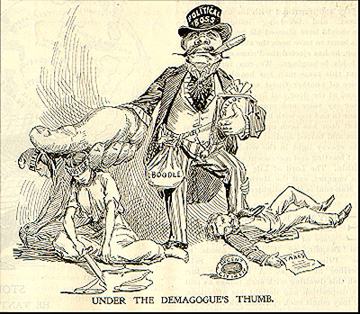
Nick Coleman, in the STrib today, discloses one woman’s experience with a focus group that was held, ostensibly about other topics, where the group members were pumped and primed to be down on immigrants and immigration, and when the attendees didn’t bite, were pushed and prodded further, in an openly desparate attempt to inflame them, to get the response that they wanted:
Demogoguery’s focus intends to blur important issues
Last February, after answering a random phone survey, Peoples was invited to take part in a focus group discussion of political issues in Mankato. The group was made up of a cross-section of voters from southern Minnesota. Taxes, gambling and sports stadiums — all being debated at the time in St. Paul — were discussed.
But there was more on the agenda at this mystery meeting, which was sponsored by a group that gave each participant a lunch and $20, but which would not identify itself.
The woman moderator, who said she was from Maryland, wanted very much to talk about immigrants. The participants already had discussed any issues they were concerned about, except the war in Iraq. There would be no talk about Iraq, the woman said. But up to that point, no one had mentioned immigration, much to the annoyance of the moderator. So she prodded the group to complain about immigrants.
“I haven’t heard anybody talk about immigration,” Peoples, an independent, recalls her saying. “Anybody have a problem with the illegal aliens coming in?”
The group’s response to the question was “a deafening silence,” Peoples says. But the woman pushed harder, listing some of the complaints she said she had heard in other states where she had conducted focus groups. Still, no one obliged her. Instead, Peoples mentioned the immigrant workers in a nearby town, praising them for how hard they seem to work.
Not the correct answer. Someone was paying money for this. They wanted problems.
“She shut me off,” Peoples recalls. “Then she said, ‘Aren’t you having problems here?’ “
The phony fabrication of “immigration” and other issues like “gay marriage,” as a diversionary tactic was exposed:
“There was no reason for this to be brought up,” Peoples says. “I think someone was trying to find an issue that will antagonize people and get them riled up so they come out and vote, without offering a solution.”
Peoples has perfectly described how demagoguery works: Exaggerate a problem; exploit the manufactured resentment at the polls; offer no solutions to address a problem without creating an even larger one.
Who sponsored the Mankato focus group is still a mystery. But there is no mystery why politicians try to capitalize on a destructive strategy. And it will be a tragedy if they succeed.
Thanks to Pat Peoples for the courage to expose their divisive agenda.
Monticello DEIS out for Comment
December 26th, 2005
The Monticello DEIS for the Dry Cask Storage Certificate of Need is out for Comment — no hurry, Comments are due March 3, 2006.
Public Meetings:
February 2 in Monticello (specifics to be announced)
February 16 in Metro (specifics to be announced, probably PUC meeting room)

Here’s the DEIS from the PUC website: Draft Environmental Impact Statement
Here’re the general rules that they’re supposed to follow, what they’re supposed to include: EIS Rules
More importantly, here’s the EQB Scoping Decision, what must be there per the EQB which no longer has authority. READ THIS SCOPING DECISION, then, COMPARE with the DEIS!
If you’re looking at the DEIS, you might note that the docket number in the link is wrong, so if you want to get to the “agency formerly known as the EQB” docket, here’s the link: Monticello Docket
If you want to look at the PUC Docket, it’s E002/CN-05-123, and it’s easy to get there from here.
First click here to get “eDockets”
Then type in “05” for the year, and “123” for Docket No.
Ta-da! You’re there. You’ll note you can’t get there without a Docket No., and it’s hard to get the Docket No. unless you have piles and piles of papers lying around with E002/CN-05-123 on them.
Here’s the Monticello pool:

Points to note in the DEIS, well, it’s mostly things that aren’t there.
Costs – there is no cost basis for alternative analysis, much less analysis
Benefits – nothing on benefits at all. No indication of impact of this plant and storage on community.
Alternative Generation analysis – incorporates cost assumptions of CoN, but no specifics here and no direct references or links. Narrative analysis is a bunch of conclusory statements, not analysis, and again, no direct references or links, no details.
… sigh… what’s it going to take to get a serious analysis?
============================================================

While digging around for something on NRC pre-emption, I found this:
What’s interesting about this is that Pawlenty wanted to enter into an agreement for the state to take over certain limited regulation of things nuclear, nothing big like nuclear plants. As they were doing their background, NRC staffers were alerted to a bunch of laws in the state of Minnesota that improperly, impermissibly intrude on NRC turf. And that’s no small potatoes, NRC pre-empts everything associated with nuclear except for one little area reserved for the state: ECONOMICS!
Here are the specifics that they are concerned about:
http://www.revisor.leg.state.mn.us/stats.
(At this Internet site see the following Mn. Stats.
115.069,116C.705 through 116C.83, 216B.1691, 216B.243, 216B.2421 through 216B.2423, and Minnesota Regulations 4410.4300 and 4410.4400) and history of law at:
http://www.leg.state.mn.us/lrl/issues/prairieisland.asp
and
http://www.house.leg.state.mn.us/hrd/pubs/nucxcel.pdf.
Anyway, the NRC did go ahead with the Agreement, saying that this stuff that they found was separate from the Agreement, compartmentalizing, but the Team Leader had a very specific and eloquent outraged hissy fit, Appendix B, Attachment 4, starts on pdf p. 68, It’s a fascinating read, a look down the dragon’s throat, summarized at the end:
The actions by the State are in direct conflict with the Act, the NWPA, and the NRCâ??s regulatory
program (e.g. the NRC issued Prairie Island operating license) for the following reasons: (1)
Absent an Agreement, a State cannot regulate activities involving byproduct, source, and
special nuclear materials, including the setting of dose limits for an ISFSI. Minnesota had no
Agreement when the dose limit was established. (2) Even with an Agreement, States cannot
regulate ISFSIs because it is preempted to the Federal Government by both the Act and the
NWPA. (3) The Stateâ??s actions are in direct conflict with NRC regulations in 10 CFR 8.4, 72,
and 150, which indicate that a State cannot regulate these activities. (4) The Stateâ??s action
conflict with the responsibilities Congress gave to NRC in the NWPA, which directed the
Commission to encourage and expedite the effective use of spent fuel pool storage at civilian
Nuclear Power Plants, including the use of reracking, fuel compaction, transshipments and if
needed, the addition of new storage capacity. The law also directed the Commission as a part
of its regulation of spent fuel storage to: (a) protect public health and safety, and the
environment; (b) consider economic impacts; (c) ensure continued operation of the reactor;
(d) apply any applicable laws; (e) consider the public views of persons near facility; and
(f) develop regulations on spent fuel storage, which resulted in 10 CFR Part 72, which provide
an adequate level of protection. (5) The application of two concurrent radiation dose standards
to the same facility by a State and the NRC is dual regulation and is not in concert with §274 of
the Act.
Is anyone paying attention to this??? I’ve been met with blank stares when I challenge Minn. Stat. 116C.76 as beyond state authority, not something we can enforce. And the NRC says it’s a whole lot more than that…
This issue isn’t going to disappear!
Domestic Spying — it gets worse
December 25th, 2005
The layers of the onion peel away…
From the STrib: The Patriot Act’s Arsenal of Intrusion
I’ve had it with all the qualified language and “questions” and hemming and hawing… “misstatements” and denial…
Here’s another STrib article with a misleading headline:
Powell supports government eavesdropping
Powell said that when he was in the Cabinet, he was not told that President Bush authorized a warrantless National Security Agency surveillance operation after the Sept. 11, 2001 attacks.
Appearing on ABC’s “This Week” Powell said he sees “absolutely nothing wrong with the president authorizing these kinds of actions” to protect the nation.
But he added, “My own judgment is that it didn’t seem to me, anyway, that it would have been that hard to go get the warrants. And even in the case of an emergency, you go and do it.”
Always the realist, Powell notes:
Powell said Congress will need to judge whether Bush is correct in his assertion that he could approve eavesdropping without first obtaining court orders.
“And that’s going to be a great debate,” Powell said.
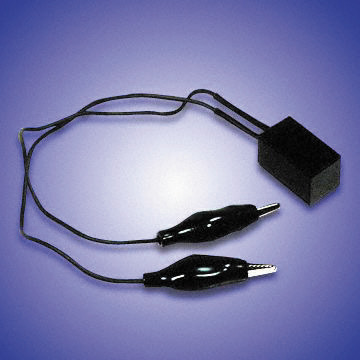
Here’re today’s revelations from the NYT
Spy Agency Mined Vast Data Trove, Officials Report
The volume of information harvested from telecommunication data and voice networks, without court-approved warrants, is much larger than the White House has acknowledged, the officials said.
…
What has not been publicly acknowledged is that N.S.A. technicians, besides actually eavesdropping on specific conversations, have combed through large volumes of phone and Internet traffic in search of patterns that might point to terrorism suspects. Some officials describe the program as a large data-mining operation.
…
The use of similar data-mining operations by the Bush administration in other contexts has raised strong objections, most notably in connection with the Total Information Awareness system, developed by the Pentagon for tracking terror suspects, and the Department of Homeland Security’s Capps program for screening airline passengers. Both programs were ultimately scrapped after public outcries over possible threats to privacy and civil liberties.
An April, 2002 post was on the money, asking the right questions:
Online Versus National Security
Yet here we are…
And today have the STrib asking the question: Was the president justified in spying on people without the court-approved warrants typically required in such cases?
Now, color me stupid, but why is this a QUESTION? All the folks “asked” about this seem clear it’s illegal! Yet the newspaper’s too cowed to state the obvious truth.